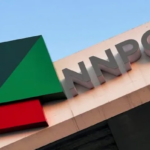Malam Ado Ahmad Gidan Dabino has been a strong pillar in the development of Hausa language in Nigeria. The actor, publisher, journalist, author, film producer and director, is one of the people that initiated the recently celebrated Hausa Day. In this interview, he spoke on the reasons behind the celebration, among other things.
What informed your decision to be part of the people who initiated the recently celebrated Hausa Day?
It started in 2016 during the World Literary Day celebration at Mumbayya in Kano State. I made the suggestion in a paper I presented during the event and the issue was taken up by writers in social media. That was how it all started, though it was not officially declared. It dawned on us that if we did not promote our language, no one would do that for us in this competitive era.
Were you invited to be part of the organising team?
No, but that’s not anything serious. As far as I am concerned, the most important thing is that we started something and people have seen the good in it; that’s what matters. This is our language and pride, so whether I was invited or not, the main aim is to promote the language; and that’s exactly what is being done.
However, members of the National Association of Hausa Students were the sole organisers of the celebration. It will interest you to know that they visited me and sought for my advice, which I willingly offered.
Moreover, Hausa Day celebration seems to be expanding by the day because this year, it was celebrated in universities in different countries, such as Niger Republic, Sudan and Egypt. These are the ones we know; probably, it was celebrated in other places.
Has any day been officially set aside for the celebration?
It is not officially declared. According to Professor Aliyu Bunza, although the celebration was taken to the university, it is not proper to let the responsibility rest solely on students. He said there’s the need for university authorities, especially the Department of Hausa Language, to take it up and treat appropriately.
Why did you come up with the idea?
Hausa Language is ranked among the first 20 languages in the world, yet its owners don’t celebrate it. I believe it is not supposed to be that way; that’s why I suggested that owners of the language should promote and protect it.
It will baffle you to know that Hausa Language is no longer taught in some foreign universities while other Nigerian languages are being taught. When I visited England in 2010, I discovered that these universities were experiencing shortage of trained lecturers for an effective teaching of the language. Some have gone to the extent of engaging their retired professors to teach the language. How long will this be?
I also discovered that the spate of insecurity in Nigeria, epileptic power supply and other social vices are some of the reasons behind the decline in the study of the language. This is because students of the language are required to visit Hausa-speaking areas and mingle with the people.
However, the good news is that I have discussed it with the vice chancellor of Bayero University, Kano and he told me they had visited England and something positive would be done to address that issue.
It is said that the number of students offering the language in tertiary institutions has reduced. What do you think is the major reason for that?
There is laxity from parents and the authorities. Why should Hausa man interact with his son or daughter in English while at home? What we are indirectly telling our children is that our language is inferior to English. And they will grow up believing that their language has no significance to what they do.
In states like Kano, Jigawa, Sokoto and others, how many people buy Hausa newspapers in government offices? Parents don’t encourage their wards to read Hausa prose, they don’t buy it for them, and you expect them to grow up with passion for the language? I don’t think so.
I have been to over 20 countries across the globe, and I was invited based on Hausa Language. When I delivered a paper in Germany, I did it in Hausa, not that I couldn’t do it in English, but because I have a language I am proud of; and I am not afraid to show it anywhere in the world.
What is the way out?
We have to go back to the drawing board as parents. We have to show our children that our language is our pride and it is superior to others.

 Join Daily Trust WhatsApp Community For Quick Access To News and Happenings Around You.
Join Daily Trust WhatsApp Community For Quick Access To News and Happenings Around You.


